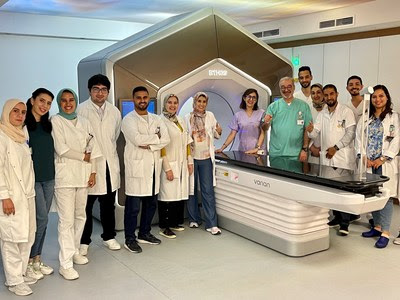COVENTRY, United Kingdom, June 09, 2022 (GLOBE NEWSWIRE) — TrueCommerce, a leading global cloud provider of supply chain and trading partner connectivity, integration and omnichannel solutions, announced today that Asda is now using TrueCommerce’s EDI-based supplier enablement solution to manage supplier communications.
As the third-largest supermarket chain in the UK, Asda operates over 600 retail stores. The brand also offers their products online via Asda.com, which serves 98% of UK homes. To do so, Asda is supported by 37 distribution and fulfilment centres and thousands of suppliers.
In February 2021, Asda was sold by Walmart to the Issa Brothers and TDR Capital. That sale led the company to choose a new EDI provider that would support its future as a standalone business: TrueCommerce.
“TrueCommerce was part of a comprehensive RFP process and was selected on the basis of four key factors: its ability to understand and meet the Asda capability requirements, its confidence in adhering to programme timelines, its deep knowledge and expertise, and its overall commercial competitiveness,” said Jenny Hopkins, Senior Director at Asda.
As part of the agreement, TrueCommerce will implement a supplier enablement platform catering to the needs of the over 2,000 suppliers that make up Asda’s entire supplier community, with integration into the business’s SAP ERP system. As an SAP Silver Partner, TrueCommerce’s solution offers the highest level of integration and automation with the SAP system.
The solution offered by TrueCommerce features key capabilities that will enable thousands of Asda suppliers, regardless of their size or technical maturity, to easily communicate with the retailer. In addition to supporting EDI transactions, the supplier enablement platform also includes a web-EDI portal for use by non-EDI capable vendors. TrueCommerce’s platform also includes fully managed supplier onboarding and communications management for EDI-related supplier queries.
TrueCommerce’s expertise in the market and experience in managing complex supply chain communications for enterprise-grade businesses will enable a seamless transition for Asda and its supplier community. It will encourage higher rates of adoption that will, in turn, underpin the company’s ongoing supplier communication efforts.
Jenny highlighted that, “By partnering with TrueCommerce, Asda will offer a strong, stable, fully reliable and excellently managed EDI programme to our highly valued Asda suppliers, no matter how big or small they are!”
David Grosvenor, Managing Director, TrueCommerce Europe said, “I’d like to thank Jenny and the team at Asda for their cooperation in this process. Our teams at TrueCommerce are delighted to begin working with Asda and help further strengthen their business in the UK retail landscape.”
About Asda Stores Ltd
Founded in the 1960s in Yorkshire, Asda is Britain’s third largest supermarket. Dedicated colleagues serve customers from its network of stores and online services, including supercentres, superstores, supermarkets, living stores, petrol filling stations and depots across the UK. Asda was acquired by Issa TDR from Walmart in 2020.
About TrueCommerce
TrueCommerce is the most complete way to connect your business across the supply chain, integrating everything from EDI to inventory management, to fulfilment, to digital storefronts and marketplaces. We’ve revolutionised supply chain visibility and collaboration by helping organisations make the most of their omnichannel initiatives via business P2P connectivity, order management, collaborative replenishment, intelligent fulfillment, cross-functional analytics, and product information management.
The TrueCommerce Global Commerce Network can connect businesses to over 160,000 retailers, distributors, and logistics service providers. As a fully managed services provider, we also manage new trading partner onboarding, as well as the ongoing management of partner-specific mapping, labeling changes, and communications monitoring. That’s why thousands of companies—ranging from startups to the global Fortune 100, across various industries—rely on us.
TrueCommerce: Do business in every direction
For more information, visit TrueCommerce.
Media Contact
Yegor Kuznetsov, TrueCommerce
703-209-0167
yegor.kuznetsov@truecommerce.

